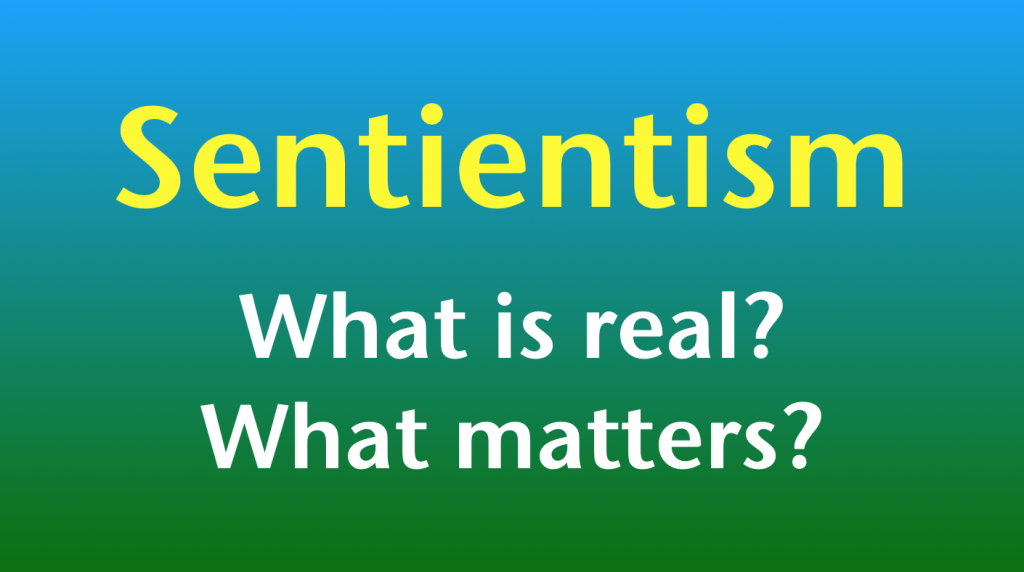
Sentientism is the name of a unifying philosophy or worldview about what’s real and what matters, promoted by Jamie Woodhouse and others.
Its main principles are using evidence and reason to understand reality, and to have compassion and moral consideration for every sentient being.
A sentient being is a living individual who can perceive or feel things, from pain, stress, and fear, to pleasure, peace, and joy. That includes humans and other animals.
Reality
Sentientism is consistent with my beliefs about reality. I believe that the universe is natural and is best understood by applying reason to evidence.
How do we evaluate what is most likely to be true? Obviously we have to use a combination of our senses and our thinking.
Faith and personal experience are the worst and least reliable ways of identifying what is true. They result in different people coming to different beliefs about the same reality.
Applying reason to evidence is the most reliable way. Why? Because it can more reliably result in different people coming to the same beliefs about the same reality.
When we apply reason to evidence, we notice that the idea of a god seems to be implausible, and that there is a relentless flow of natural explanations for the universe.
I am happy to say that I might be mistaken about anything that I believe. But applying reason to evidence makes it less likely that I will be mistaken.
Morality
Sentientism is also consistent with my beliefs about morality. I subscribe to a variation of John Rawls’ social contract theory of morality.
Essentially, that is: How would a perfectly rational set of people design principles of justice for a society, if we don’t know in advance what position we would hold in that society?
That is, we don’t know if we will be rich or poor, male or female, healthy or sick. This veil of ignorance forces us to be impartial, and to develop universally just principles to apply to all people.
My personal addition to the theory is that we also should not know what species we would be. I believe one of the greatest injustices in our world is how we treat nonhuman animals.
Every year we kill over 50 billion farmed animals, and up to a trillion fish. These sentient beings suffer unjustly for our convenience, and our slaughter of them is an ongoing moral atrocity.
This variation on John Rawls’ social contract theory won’t tell us exactly what is right and wrong in any given circumstance. But it does provide a way by which we can, in principle, examine what is most likely to be right and wrong.
Sentientism
Sentientism is consistent with rationalism, naturalism, atheism, and veganism, and is more universal than humanism.
As a personal caveat, I think it could be possible to amend the word sentientism as the label for this philosophy.
But the philosophy itself is strong enough and important enough to promote as sentientism while having that discussion.
I urge you to follow the links below for more information on sentientism.
Further information
- Sentientism website
- Sentientism on Youtube
- Sentientism Podcast
- Sentientism on Instagram
- Sentientism Facebook Page
- Sentientism Facebook Group
- Sentientism on Twitter
- Jamie Woodhouse’s website
Love your explanation.
Sentience is a fact, not a value. But it is not a very well defined fact, so bridging the fact-value distinction in order to truly develop a philosophy of “sentientism” is exceedingly difficult. When I have queried Woodhouse about these issues, his responses are thin. I’m all for expanding the circle of moral concern beyond humans, but there are better ways to do so.
What do you have in mind as an amendment the word sentientism?